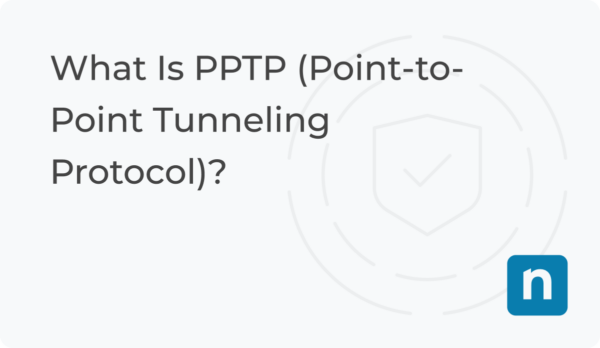PPTP (Point-to-Point Tunneling Protocol) is a widely used networking protocol for implementing virtual private networks (VPNs). It allows the secure transfer of data from a remote client to a private server over the Internet. PPTP is a legacy protocol initially developed by Microsoft and later standardized by the Internet Engineering Task Force (IETF) in RFC 2637.
Detailed Explanation of PPTP
PPTP establishes a secure connection between a client and a server by encapsulating PPP (Point-to-Point Protocol) packets within IP packets for transmission over the Internet. It creates a virtual tunnel through which data can be transmitted securely, providing privacy and integrity for the transmitted information.
Key Features of PPTP
- Ease of Implementation: PPTP is relatively easy to implement and configure, making it accessible to a wide range of users.
- Compatibility: PPTP is compatible with most operating systems and devices, including Windows, macOS, Linux, iOS, and Android.
- Fast Connection: PPTP typically offers fast connection speeds due to its lightweight encryption and protocol overhead.
Types of PPTP
There are primarily two types of PPTP configurations:
- Server-based PPTP: In this setup, a dedicated PPTP server manages client connections, providing access to resources within a private network.
- Router-based PPTP: Some routers offer built-in support for PPTP, allowing users to establish VPN connections directly through their routers.
Uses of PPTP
PPTP can be utilized in various scenarios, including:
- Secure remote access to corporate networks for telecommuters and remote workers.
- Bypassing geographic restrictions by tunneling through VPN servers located in different regions.
- Protecting sensitive data transmitted over public Wi-Fi networks, such as in cafes, airports, and hotels.
Challenges and Solutions
Despite its widespread use, PPTP has some drawbacks:
- Security Concerns: PPTP has known vulnerabilities, making it susceptible to attacks such as brute force and man-in-the-middle attacks.
- Limited Encryption: PPTP encryption is considered weak compared to modern VPN protocols like OpenVPN and IPSec.
To address these issues, users can:
- Upgrade to Stronger Protocols: Consider migrating to more secure VPN protocols, such as OpenVPN or L2TP/IPSec.
- Implement Additional Security Measures: Use strong passwords, enable multi-factor authentication, and regularly update software to mitigate security risks.
Characteristics and Comparisons
Here’s a comparison of PPTP with other VPN protocols:
| Feature | PPTP | OpenVPN | IPSec |
|---|---|---|---|
| Encryption | Weak | Strong | Strong |
| Compatibility | Widely supported | Requires setup | Requires setup |
| Security | Vulnerable | Highly secure | Highly secure |
| Speed | Fast | Moderate | Moderate |
Future Perspectives
As technology evolves, the use of PPTP is expected to decline in favor of more secure and robust VPN protocols. However, it may still find niche applications where compatibility and ease of implementation are prioritized over advanced security features.
VPN and PPTP
VPNs often leverage PPTP as one of several available protocols for establishing secure connections. Users can choose PPTP when speed and compatibility are paramount, but it’s essential to weigh the trade-offs in security.
Resources for Further Information
For more information about PPTP and VPN protocols, consider exploring the following resources:
- IETF RFC 2637: https://www.ietf.org/rfc/rfc2637.txt
- Microsoft PPTP Overview: https://docs.microsoft.com/en-us/previous-versions/windows/it-pro/windows-server-2003/cc757501(v=ws.10)
- OpenVPN Documentation: https://openvpn.net/community-resources/documentation/
- IPSec VPN Guide: https://www.cisco.com/c/en/us/products/security/ip-security/ipsec-vpn-solutions/index.html


